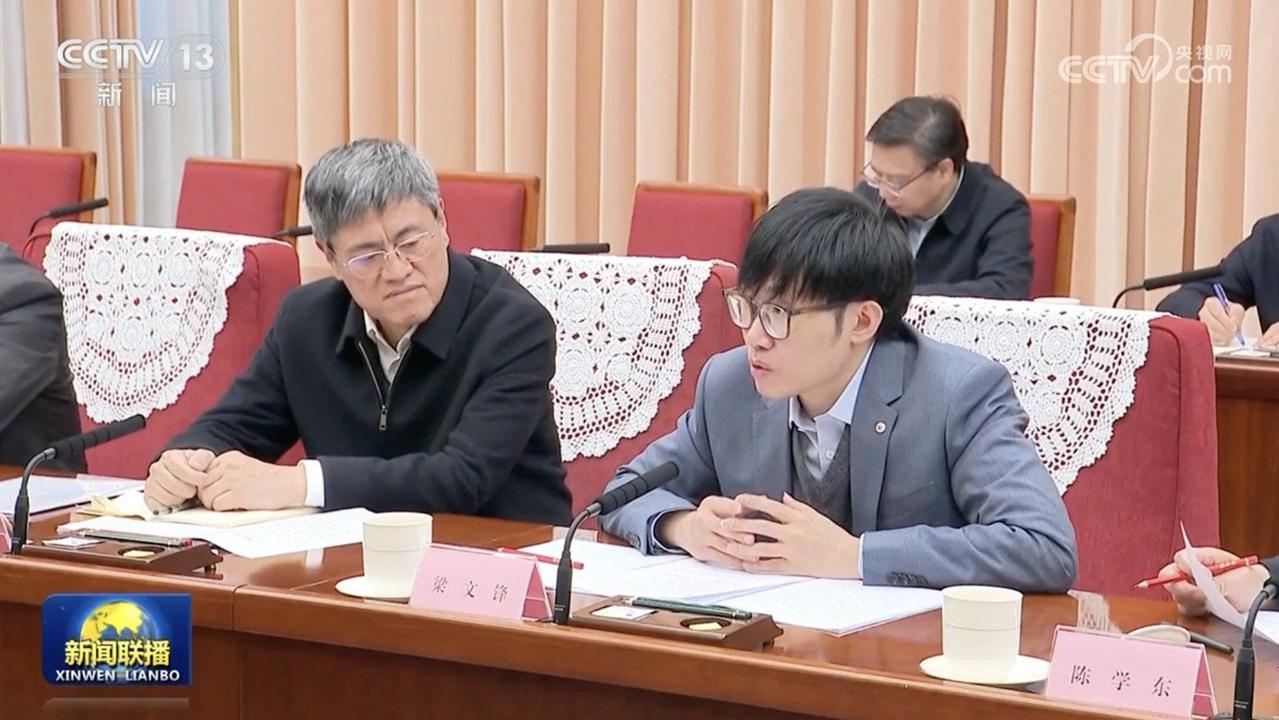‘Australia should embrace DeepSeek as an opportunity to lead’
The launch of controversial Chinese AI company DeepSeek places Australia in a unique position and we must act now, an expert says.
OPINION
Australia could shape global economic models and steer international standards if we stop sitting on the fence about emerging technologies.
The recent ban of the DeepSeek chatbot on all federal government devices is not about the software’s country of origin (China), we’re told, but “to protect Australia’s national security and national interest”.
Two years after Australia slapped a government ban on TikTok on federal devices, we are now joining other countries including Italy and Taiwan moving to head off the potential impact of DeepSeek, which has emerged as a striking force in the technology world.
But instead of seeing it as a danger to be blocked, government and policymakers should use it as an opportunity to be a global leader in setting the standards for innovation.
DeepSeek has undoubtedly raised new concerns about privacy, national security and the delicate question of how to balance regulation with the benefits that artificial intelligence can bring.
Although DeepSeek may look like just another online tool, its significance reaches into global trade, communication and cultural development and its entry into the world crashed technology markets and raised questions about technology investment.
Countries that lead in these new technologies can influence debates on social media, shape innovative economic models and steer international standards.
DeepSeek has challenged the United States’ dominance of much of this sector, with products such as Open AI’s ChatGPT and the Google Gemini platform highlighting ongoing tensions over who gets to set the standard for innovation.

The main issue prompting debate about DeepSeek is how it gathers and stores user data. Since the platform stores its information on servers in mainland China, observers worry about the possibility of government oversight and censorship.
Critics also point out that Chinese legal requirements oblige companies to comply with official demands for data.
At the same time, it is fair to note that competing platforms in other countries have faced their own questions about data collection.
The real concern is not simply the place where any platform is based, but whether data is used in a way that is fair, transparent and respects personal rights.
In Australia, there is an early but intense discussion of how to protect individual consumers, safeguard national interests and still promote local innovation.

Australia’s unique position, particularly its vast distances and specialised industries, adds another layer of complexity.
The country has an opportunity to become a leader in advanced AI fields in domains such as healthcare, mining, education and agriculture, yet it also faces hurdles such as a lack of homegrown technology models and a dependence on large central data centres.
A move toward more local processing, where data is analysed on site rather than sent elsewhere, might help address potential problems like slow data speeds and security risks.
We can’t keep sitting on the fence.
This method could also expand the potential for regional communities to benefit from modern approaches to remote healthcare and advanced farming, provided the right laws and incentives are in place.
The debate around DeepSeek also illustrates deeper questions about how both government and private industry can navigate a fast-changing world.

Is it better to ban certain high-risk technologies outright, or should we introduce broader safeguards for all emerging tools?
How can businesses protect users’ privacy while taking advantage of new efficiencies and breakthroughs?
And how do we attract significant investment and research without allowing vital infrastructure to fall under undue influence?
Finding answers to these questions will not be quick or easy.
Yet events are moving fast, and the potential for artificial intelligence to reshape everyday life grows with each passing day.
Instead of seeing DeepSeek as a danger to be blocked, policymakers, researchers and corporate leaders might consider it a prompt to think more deliberately about our country’s digital future.
That includes organising more forums for public input, supporting partnerships between government agencies, universities and private innovators, and clarifying rules around data management and technological skills development.
By emphasising the need for security and open competition, Australia can make a name for itself as a responsible leader in this new era.
Ultimately, the debate that DeepSeek has inspired is about more than any one chatbot.
It reflects how Australia will manage progress in advanced technology to serve the common good, without sacrificing privacy, civic values or national security.
If approached with foresight, the concerns sparked by DeepSeek can encourage the creation of a stronger framework for innovation, one that allows local businesses and communities to thrive while respecting ethical and social responsibilities.
Dr James Birt is an expert in educational technology focusing on emerging technologies such as Virtual Reality, Augmented Reality, and immersive simulations. He is Associate Dean External Engagement at Bond University.
More Coverage
Originally published as ‘Australia should embrace DeepSeek as an opportunity to lead’



